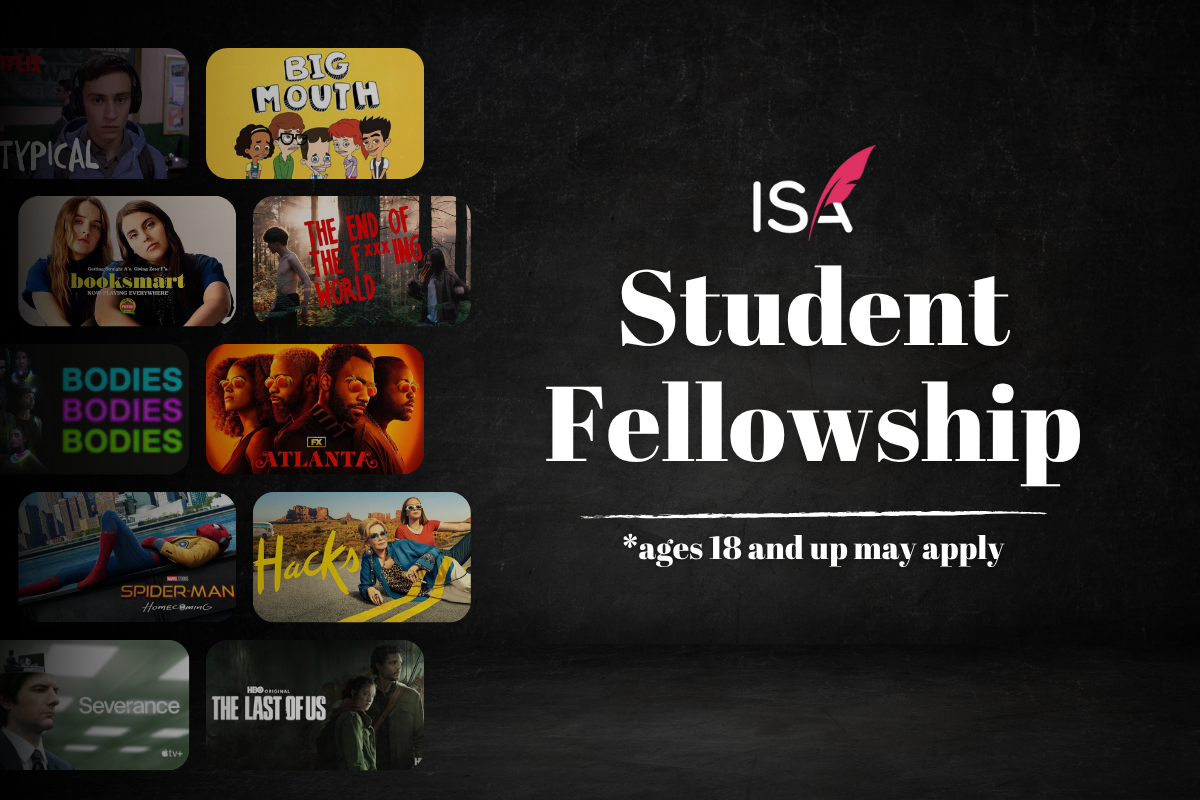WRITERS ON WRITING: Staying Hungry – From Wannabe To Working Writer
Josh Heald, screenwriter of ‘Hot Tub Time Machine,’ gives advice on how to go from wannabe to working writer.
Originally published in Script magazine November/December 2004
Editor's Note: We like to take a look back into our archives to find articles written by industry professionals to demonstrate the changes in the industry as well as the things that stay the same. Today, we're sharing an old post from 2004 by screenwriter Josh Heald, written right after his first sale to New Line who bought his pitch, Open Bar, as well as his spec, All You Can Eat. Years later, in 2010, his film Hot Tub Time Machine would hit the big screen—his first official writing credit. It's important to always remember, as long as you stay in the game, you still have a shot—so stay hungry!
I guess the best advice I never got about selling a screenplay is to get a friend to go through the whole process first.
It’s the middle of May 2000, and I’m all set to graduate from the University of Pennsylvania with my snappy marketing degree and a closet full of suits. I’m heading to San Francisco to work as a management consultant where two of my best friends will be working as investment banking analysts. Wait ... make that one of my best friends. It’s the eve of our graduation, and two of us have been hung out to dry because our bastard friend went and sold a script to MGM. Terrific. Now Harold and I have to find a new roommate.
The writer friend is Jon Hurwitz, co-creator of Harold & Kumar Go To White Castle. Harold is Harold Lee, the inspiration for the lead character of the film. While the White Castle script came a couple of years later, his first sale (along with writing partner Hayden Schlossberg) allowed Jon to ditch San Francisco for Hollywood and trade in his cubicle for a pair of designer sunglasses—and that got me thinking.
It’s 3:30 a.m. in the middle of November 2000, and I’m still at work. I’ve been pulling all-nighters (or pretty damn close) for a few weeks, crunching numbers for a contract manufacturing client. I’m trying to remember the last time I had fun in San Francisco and I can’t. People have started getting laid off, and it sure has been raining a lot lately. The best time I’ve had recently was on a visit to Los Angeles—it sure is sunny down there. And they have great burgers. That does it. I’m getting the hell out of here.
My reasons for beginning to explore a potential career in writing had a little more depth than just good weather and delicious burgers (although those were a good start). I had been a writer in college, rising through the ranks of a student-run magazine, 34th Street, and helming it during my junior and senior years. Working on the magazine gave me a taste of the entertainment industry, interviewing actors and reviewing movies. Upon graduating, though, I went with the sure thing and chose management consulting over the risk of an artistic career. Now it was time to make amends.
A friend at an agency in New York led me to believe that if I penned a television sitcom spec, shows were giving out staff writing jobs. I bought a book on sitcom writing and entertained my brain with thoughts of WGA minimums as I began writing the least marketable spec in the history of spec writing—an episode of The Norm Show. No one told me that I should write something that people actually watched. Hey, I enjoyed the show so I figured that would make it better. My script very well could have been the best spec ever written; but, for all intents and purposes, it was worthless. Back to the drawing board.
It’s early 2001, and I’ve just spent a miserable New Year’s Eve in San Francisco with a bunch of people I don’t like very much—and Harold. Filled with a newfound resolve not to suffer a repeat of the same horribleness next year, I get to work on my first screenplay. It’s a college comedy, and I’m having a blast writing it. My only experience thus far was with The Norm Show spec, which was restrictive in regards to what I could do with the characters. While Norm involved characters Artie and Danny getting stuck in a refrigeration truck (ah, let the hijinks ensue), my untitled screenplay has sex, violence, a heist, more sex and a lot of crude humor. By the time I’m done with this script, I’m confident that I’ve penned the next great American Pie, but older ... and no pie.
Then I read the script through from front to back. There were structural problems, characterization issues, story development concerns—the works. It was a fun read, sure; but it didn’t feel like a movie. In fact, I wasn’t quite sure how a movie script was supposed to feel. That was all about to change.
It’s May 2001, and I’m silently delighted. I’ve just been laid off and offered a generous severance package. Having spent the previous month sitting at my desk with the other consultants, twiddling our thumbs, I’ve been brainstorming ways of breaking from my job while financially being able to launch my screenwriting aspirations. My firm just answered my prayers as they unintentionally bankrolled my dream. I give an Oscar®-worthy performance as I accept the Human Resources lady’s offer of a tissue.
Then I take the firm’s offer of a free limo ride home to my apartment where I quickly find a roommate replacement and pack my bags for L.A.
Once I land in L.A., Jon and Hayden get a mutual friend to hire me as a script reader for studio executives. I figure that reading a few scripts a day can supplement my severance income while helping me gain the necessary tools to become a competent screenwriter. What I don’t count on is that somewhere between 300 and the eventual 1,500 scripts I read and cover, reading stops getting educational and becomes mindnumbing. My spirits are further dampened to see a slew of campy vampire and werewolf flicks get greenlit on my watch. Still, I keep my head down and read, while somehow finding time to write, wondering if this gamble and my parents’ offer of financial support is going to pay off.
Unsure of what television spec I should write to get staffed in the now increasingly shrinking sitcom marketplace (Thanks, Survivor!), I wrote them all. Malcolm In The Middle, Everybody Loves Raymond, Curb Your Enthusiasm—take your pick. But I still had no idea how to break in. Around the middle of 2002, I wrote an original one-hour comedy pilot called Diary of a Short Fat Jewish Boy, based loosely (okay, tightly) on my experiences in high school. I sent it to a television writer and producer, Billy Van Zandt, whom I had learned attended my high school (albeit years before me). Using this bit of familiarity as an introduction, I asked Billy for some constructive criticism. He went further and introduced me to an agent, and eventually the piece was optioned by a production company. While my relationship with that agent fizzled, television and film execs were responding to the comedy in this piece differently than to my other samples. It was a better-structured example of my somewhat freehand attempt at penning a screenplay a year and a half ago. My spirits raised and my mind now inherently loaded with proper structure, I set about writing another comedy screenplay.
After viewing a two-hour professional eating competition aired on Fox in 2002 with Jon and Hayden, we all agreed that the world of competitive eating was ripe for comedy. The deadpan manner in which the International Federation of Competitive Eating’s announcers were presenting the event and billing it as a serious sport made us all think—there could be a movie here. Jon and Hayden initially planned to write the screenplay but got weighed down with other work. I stepped in to work out the story and write the script, and they agreed to collaborate as producers and help the script along with their management team. Thus All You Can Eat was born, the story of a thin underdog vying for the ultimate competitive eating championship.
My main challenge in penning Eat was acknowledging the sometimes cartoonish and over-the-top nature of the competitive eating world while still grounding the characters with a sense of heart and relatability. I called upon my own experiences as a former overweight child to create a protagonist who has pinned all his hopes and dreams in the world on the idea that thinness answers all of one’s prayers. While the protagonist’s journey toward a greater understanding of the universe takes him through some pretty ridiculous territory, keeping him grounded in a sympathetic reality was very important to me���and it was ultimately a heavy selling point for the studio execs who enjoyed the deeper and quirkier degree of heart than sometimes found in broad comedy.
INT. SCHOOL CAFETERIA – DAY
The cafeteria is empty, except for one OVERWEIGHT STUDENT who sits at a table in the distance with his back to us.
DANNY (V.O.)
When I was a kid, I once
ate an entire box of Twinkies.
SLOWLY PUSHING IN on the OVERWEIGHT STUDENT from behind, we can tell that he is ravenously eating something.
DANNY (V.O.)
And I’m not talking about
your normal-sized box.
I’m talking about the warehouse
club 36-pack, designed specifically
for entire kindergarten
classes or fat kids.
TWINKIE WRAPPERS fly in every direction.
EXT. SCHOOL PLAYGROUND - DAY An ENORMOUS FAT KID fills the frame.
DANNY (V.O.)
I wasn’t the fattest kid in school.
That was Bobby Pasquerelli.
I was his understudy.
BOBBY moves aside, revealing the SLIGHTLY SMALLER, but still overweight DANNY CARUSO (age 12).
DANNY (V.O.)
When Bobby moved away in
the seventh grade, it was
my turn to perform.
YOUNG DANNY watches as a BLONDHAIRED PRICK and his CRONIES throw GARBAGE at BOBBY, as he gets in the backseat of a car. After Bobby leaves, they all start throwing GARBAGE at Danny.
DANNY (V.O.)
I just laughed and played
along like fat kids are
trained to do.
YOUNG DANNY does a half-hearted SHUFFLE and holds back tears.
INT. KITCHEN - DAY
An open pantry door reveals EVERY KIND OF JUNK FOOD.
DANNY (V.O.)
But when I got home
from school, I took my
misery out on the pantry.
We pan over and see YOUNG DANNY sitting at a table SOBBING AND PIGGING OUT LIKE A FIEND. He’s surrounded by junk food.
DANNY (V.O.)
I knew that Chef Boyardee,
Little Debbie and that Pringles
guy would never laugh at me.
(beat)
At least to my face.
CLOSE ON the SMILING “PRINGLES GUY” LOGO.
Once the script was complete, selling All You Can Eat became an unexpected chore. I knew I had a unique product; and, unless everyone was just paying me lip service, it was actually a pretty funny script. The piece started generating its share of fans among younger studio execs, but a lot of senior people didn’t seem to quite “get it.” That’s a challenge I often deal with when introducing more absurd comedy into my material and a challenge I will always be acutely conscious of when pitching to certain audiences.
As a fan of more ridiculous schools of comedy such as The State, Mr. Show and Family Guy, I often have to step outside my most imaginative ideas and ask myself if what I’m coming up with is even moderately marketable or widely relatable. I believe some of my best stuff will forever be locked in my brain, perhaps someday escaping only to entertain me and a select few. Fortunately, my friends are a good reality check for me. Sometimes the act of vocalizing an idea will set off alarms and remind me who my potential audience is going to be come the Monday morning pitch meeting. I find that it’s a constant trade-off in comedy, being as original and genuine as you can while still reaching toward an audience of more than five.
In the interim, while All You Can Eat was meandering its way through the Hollywood machine seeking out a home, I began developing a new idea. Some of my favorite comedy moments onscreen have been the result of an odd-couple comedy pairing in which one of the characters is frustrated to his wit’s end (What About Bob?, Planes, Trains and Automobiles). I set out to create the next big buddy comedy, set inside a dive bar. The pitch went something like this: Two friends who haven’t seen each other in 15 years reunite when one of them uses the other’s money to purchase the decrepit dive bar they used to sneak into in high school.
Pitching was a whole new animal for me. I had been used to writing a complete script and letting the words speak for themselves. Suddenly, I was in the position of having to create the atmosphere of the movie in the setting of a business meeting. Awkward does not do justice to my first sloppy attempt at pitching. I’ve found that there is no art to pitching. It’s simply a matter of getting more and more comfortable and familiar with the material you are creating. In multiple meetings with two studios, I found myself growing closer to my characters and fully understanding their voices, which helped enormously in translating the comedy across a room full of executives.
Shepherded into New Line Cinema by Luke Ryan, an exec who definitely “gets it,” I soon found myself pitching Open Bar, as the pitch became known, to three execs in L.A., one in New York (via video conference) and the president of the entire company, who wanted to hear what I had to offer. At the end of the day, New Line bought my pitch and officially validated my two-and-a-half year “aspiring screenwriting” experiment, signing on Jon and Hayden to produce. A couple of weeks later, the same team of execs made my day by purchasing All You Can Eat, which I am now fine-tuning in anticipation of potentially going into production.
At the end of the day, having good friends involved with both of my projects was enormously helpful in terms of planning pitch strategy, gut-checking comedy and offering insight into an unfamiliar environment. What the experience has taught me is to be mindful of my audience at all times—and not just the intended box-office audience. Knowing the marketplace and anticipating concerns ahead of time can go a long way in earning a studio’s trust and establishing yourself as a forward-thinking writer with whom people want to continuously work. Where would I have been without my guinea pig friends? Well, it’s 3:30 a.m. somewhere, and I’m sure someone needs some numbers crunched.
Follow Josh on Twitter: @healdrules
- Balls of Steel: The "Magic Trick" to Selling a Screenplay
- HBO Exec Chris Salvaterra Offers Perspective on The Business Side of Screenwriting
- Dream Career Toolkit: What if You Weren't Afraid to Fail?
Get tips from screenwriting career coach Lee Jessup in her webinar
Specs Don't Sell: How to Build Your Screenwriting Career
Top screenwriting and film publication, founded in 1989, published by Active Interest Media. Twitter: @scriptmag







